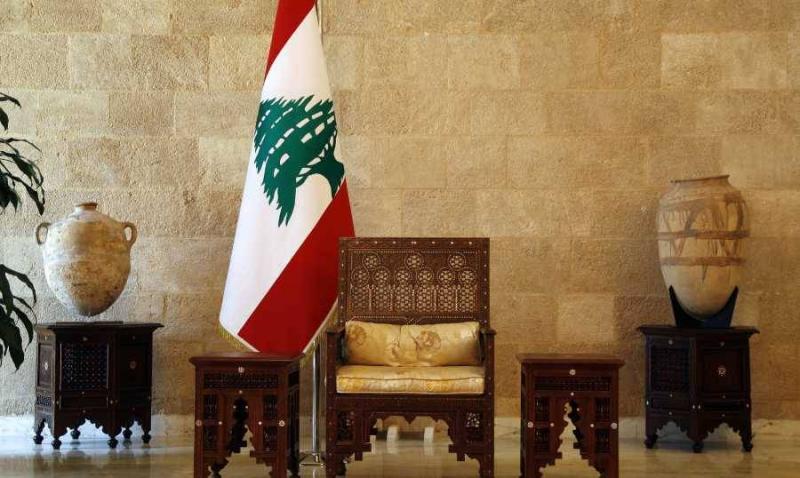Although the political era in the country is predominantly governmental, with the appointed president Najib Mikati striving to form a government swiftly after his parliamentary consultations, as evidenced by his presentation of a draft to President Michel Aoun less than 18 hours after meeting the last deputy in parliament, the shadow of the presidential election looms over the movements and stances of all political forces, both secretly and publicly. Some did not even hide during the binding parliamentary consultations at Baabda Palace that they did not name anyone "because it is not prudent."
Practically, in two months, the country will enter the presidential orbit, as the search for the next president is expected to commence in early September. However, no one is waiting for this date. Everyone, from all directions and political affiliations, is engaged in probing and searching for the identity of the "suicidal" individual who will attempt to save a country drowning in corruption, collapse, and failure, a country that lies at the bottom of hell, nearly impossible to extricate except by a miracle—specifically, the overthrow of a regime responsible for its downfall, which the people mostly re-elected. This regime is controlled by individuals wielding illegal weapons to intimidate the populace and other political forces should they not comply with them, while covering up the actions of their allies in a plea for the sectarian and political cover they need to attempt to legitimize themselves and their arms.
It is well known and indeed certain in Lebanon that the president is not a purely Lebanese choice; the decisive word belongs to major capitals, specifically Washington, usually with French and Vatican endorsement. Meanwhile, Tehran had its opinion regarding the last presidents, to the extent that it can be said it imposed its preferred candidates. According to Western diplomatic sources speaking to "Al-Markaziya," this era has transformed, as Iran no longer has the right to choose but only a "veto" if someone hostile to it is imposed, nothing more. The major capitals have specified the characteristics that should be present in the one elected as president of Lebanon for the next six years, which must represent a transitional phase from collapse to rescue. These characteristics do not apply to those that some are trying to install through a political deal or based on foreign agendas. The experience of the strong president will not be repeated, nor will there be a partisan president regardless of their popular strength. Lebanon needs a president from outside the current political sphere, someone informed of financial and economic realities, realistic, who understands where the journey to rebuild the state and restructure its institutions begins, and how to put an end to futile financial dealings. The argument of where we can find such a person is not valid and merely seeks to promote political figures already known to be incapable of implementing a reform program and changing the lamentable reality of the Lebanese people mourning their homeland.
The diplomatic sources report a Western official stating, "The new president of Lebanon will be the result of the changes occurring in the region and the shifting balance of power. A president who aligns with the role and identity of Lebanon, which will be defined by international and regional developments, especially after the Gulf-American summit to be held in Riyadh in mid-July with the participation of Egypt, Jordan, and Iraq, attended by President Joe Biden, as well as the outcome of indirect nuclear negotiations that have resumed in Qatar between the Iranians and Americans after Tehran has dropped its preconditions and adapted to the current realities dictated by the nascent Arab-American-Israeli alliance and what may result from it.
Furthermore, it adds that the most likely option is to choose a figure among many candidates currently touring abroad, who are distant from the political forces in Lebanon that do not agree on a single presidential specification or criteria, amidst a stark divergence of opinions between the sovereign forces and the ruling parties. The sovereign team is demanding a Lebanese president who prioritizes Lebanon's interest above all else and does not submit to outside influence, especially from the Iranian axis, represented by Hezbollah and its arms that have destroyed the state and its institutions.




